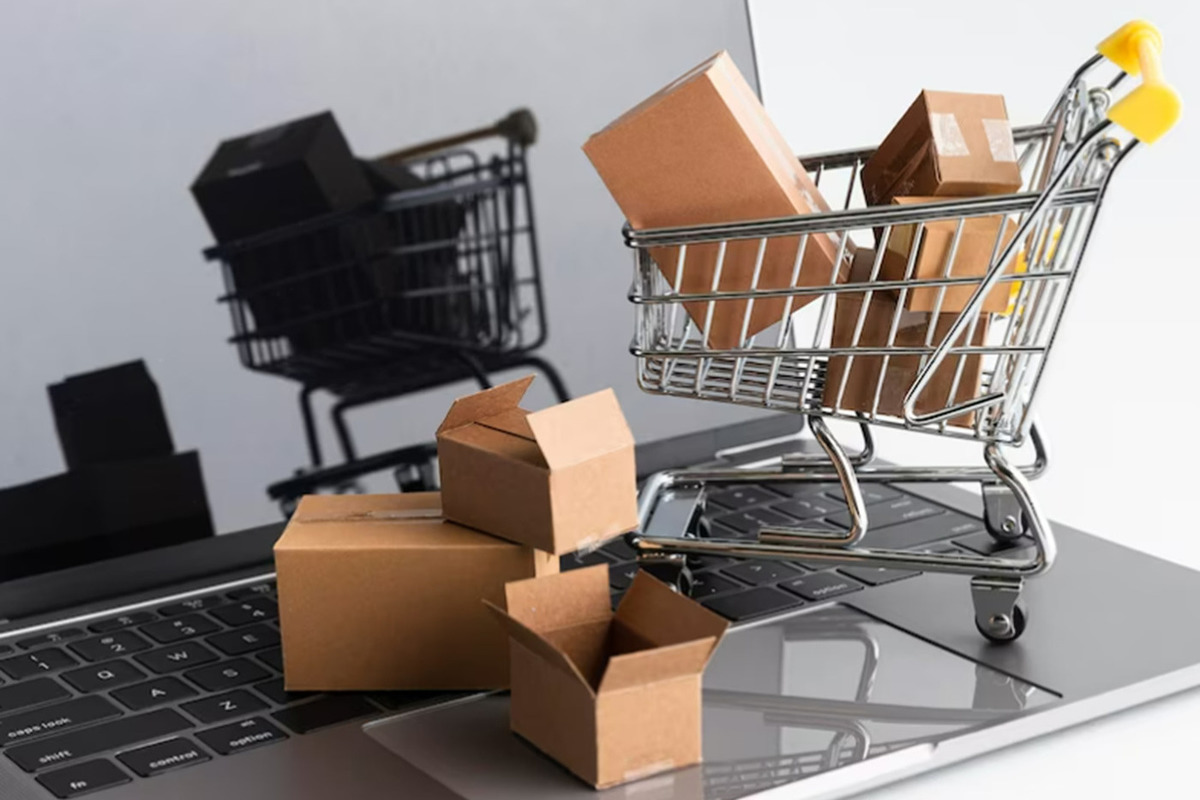The authorities are thinking about creating a state marketplace: how will it affect competition?
[ad_1]

“The current online trading market is 70% repurchase of Chinese goods”
A state marketplace may appear in Russia. The proposal to create it was made by Ivan Abramov, Deputy Chairman of the Federation Council Committee on Economic Policy. The senator wants only Russian-made goods to be sold on the state trading platform. Why the “powers that be” are interested in marketplaces, what goals the authorities actually pursue and whether Russians will benefit from this, experts argued.
The appearance of a state-owned marketplace on the online trading market will be beneficial for both sellers and consumers. Buyers will be confident that all products have Russian certificates and they have “passed all checks.” It will be profitable for sellers to place their goods on such a trading platform, since they will be charged a commission there, not “20%, but some kind of minimum fee.” This proposal was voiced by Senator Abramov at a round table entitled “Legislative regulation of the activities of marketplaces.”
Experts have differing opinions about why the issue of a state marketplace was raised right now. Some analysts argue that the authorities paid attention to the high income of trading platforms. Thus, according to investment adviser Yulia Kuznetsova, the authorities analyzed the profits of marketplaces and decided that it would be nice for government agencies to also become part of an actively developing area. “I would even note not just the state, but perhaps some persons under the guise of the state,” the expert emphasized, recalling that the fortune of the CEO of one of the most popular marketplaces in Russia, Tatyana Bakalchuk, is $7.6 billion.
Freedom Finance Global analyst Vladimir Chernov also agrees that the authorities are showing interest in marketplaces against the backdrop of the rapid growth of this industry and the gradual shift in consumer activity from offline to online purchases. At the end of 2023, the total volume of spending on marketplaces increased by 1.5 times in annual terms, and the number of transactions increased by 63% compared to the previous year. In addition, according to the expert, a reduction in commission fees from the seller compared to conventional marketplaces will also have a positive impact on the final price of the product for the buyer, since marketplace commission fees are usually included in it in advance, which the authorities can also take care of.
Another group of analysts points out that the senator’s proposal to reduce the commission for placing goods on the state marketplace for domestic manufacturers indicates the authorities’ desire to support Russian business. As the head of the Association of Participants in the Electronic Money and Money Transfer Market, Viktor Dostov, recalled, protectionism is part of the policy of any state, so considering a marketplace for domestic goods is quite possible.
The third group of experts argues that the state marketplace can be created for the development of other large projects in Russia. “Most likely, the creation of a new marketplace is associated with the support of state-owned companies that could take part in this project,” suggested Associate Professor of the Department of Economic Theory of the Russian Economic University. Plekhanova Ekaterina Novikova.
Analysts also have differing opinions on how this project will be implemented. Will authorities need to create a new marketplace or will they simply acquire existing brands? According to Evgeniy Mironyuk, an expert on the stock market at BKS World of Investments, it would be more rational to suggest that existing marketplaces allocate a “shelf” (section) with domestic certified goods, so that it is always in a prominent place in the application and on the website. And the search algorithm by name would secure top positions in the marketplace results. In this case, market rather than administrative methods are preferable. They could be compensation for certain costs or preferential tax treatment for domestic goods in the cooperation of their manufacturers with trading platforms. For the state, it would be much cheaper than creating and promoting a new brand, the financier is sure.
On the other hand, today in Russia the marketplace market is actually divided between several large players. The emergence of a new marketplace with government support could change the situation for the better and increase competition between sites, which is always good for consumers. “The more players there are, the more market-like the working conditions are,” says Anna Gondusova, director of client relations at Alfa Capital Management Company. In general, the idea of helping to create comfortable conditions for a meeting between manufacturer and buyer is very reasonable. The current marketplace market is 70% repurchase of Chinese goods, which does not contribute to the development of domestic manufacturers, the expert emphasized.
[ad_2]
Source link






